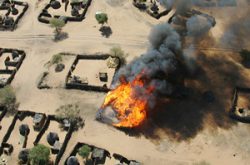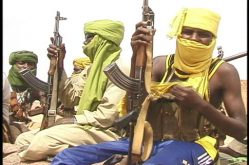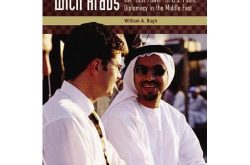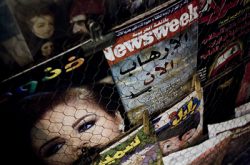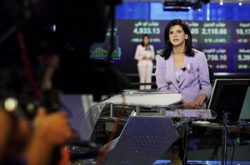There is no issue in Arab journalism today that is more controversial than how the region’s media cover Darfur. It is the hot-button issue in the Arab newsroom not because of the physical danger but because the issue bores right to the heart of the mission of Arab journalism and the self-identity of those who practice it, writes Publisher and Co-Editor Lawrence Pintak.
Read More »British Middle East representative, Jon Wilks: Fluent Arabic spokesmen can “promote a freer media in the Arab World”
Recently posted at the British embassy in Dubai, Jon Wilks is no newcomer to the Middle East. Having served across the region over a number of years, the fluent Arabic speaker has been brought in to explain British government policy to the Arab World. Speaking to Arab Media & Society Managing Editor George Weyman, Wilks talks about his role, revealing his mixed views on Arab-channel interviews and how he avoids discussing conspiracy theories.
Read More »Al Arabiya Producer Nabil Kassem: Arab media are “living in denial” over Darfur
Two years on, Nabil Kassem is still profoundly affected by his experiences in Sudan. What he witnessed there, and recorded in a film he made for Al Arabiya, were scenes of unspeakable brutality and untold suffering, scenes he thought would surely wake up an Arab public all too willing to let Darfur pass by. But 'Jihad on Horseback' never made it across the airwaves. In this highly charged interview with Lawrence Pintak, Kassem speaks of how Sudanese President Omar Al-Bashir prevented the broadcast of perhaps the most provocative documentary film ever made by an Arab director.
Read More »BOOK REVIEW | American Encounters with Arabs: The “Soft Power” of U.S. Public Diplomacy in the Middle East
Readers of American Encounters will be heartened by the reminder that — regardless of the administration or specific policy — there remain elements in the U.S. foreign policy establishment dedicated to engaging with Arab audiences and keeping avenues of communication open, argues Will Ward.
Read More »BOOK REVIEW | Baghdad Burning: Girl Blog from Iraq, Volume II
With Riverbend’s blog, no longer is the reader limited to news reports from major networks or White House press conferences: the blog phenomena and particularly that of Riverbend and her blogging peers represents an uncensored real-time account of war, politics, and the perils of neo-imperialism, says Alexandra Izabela Jerome.
Read More »Amr Diab to host new talent show
President of the Egyptian Television Network Suzan Hasan revealed to “Al Safeer” (The Ambassador) magazine that celebrity Egyptian singer Amr Diab will be presenting a new weekly program titled “Al Awal” (The First). Read the full article at Al Bawaba.
Read More »Saudi king sponsors radio phone-in programme for citizens’ grievances
BBC Monitoring Text of report by London-based newspaper Al-Hayat on 17 May [Report by Mu'awiyah Yasin in Riyadh: "Saudi Radio Station Joins ' Open Councils' in addressing people's grievances."] Since the era of Saudi Arabia founder, King Abd-al-Aziz Bin-Abd-al-Rahman Al Sa'ud, the Saudi people with grievances have always resorted to …
Read More »Egyptian actor to star in Omaret Yacoubian musalsal
MEB Journal Egyptian actor Ezzat Abu Ouf will star in a new TV series "Omaret Yacoubian" (The Yaacoubian Building), which is scheduled to run during Ramadan. The drama will be based on the Story of Ala’a Al Aswani. Read full story at Good News For Me.
Read More »Do National political systems still influence Arab media?
Although recent changes in information technology, especially the growth of satellite television, have had an impact on Arab media, making national borders more porous, existing national political systems are still a dominant variable affecting the structure and behavior of Arab media, argues Editorial Board Member William A. Rugh.
Read More »Lines in the Sand: Problematizing Arab Media in the Post-Taxonomic Era
Without a critical cultural examination of the multiple sides of the “Arabic” and “Arab” media terrain, the fervent attachment to the production of taxonomies to describe this terrain at a time of exponential transformation may provide little more than lines in the sand, claims Editorial Board Member Adel Iskandar.
Read More » Arab Media & Society The Arab Media Hub
Arab Media & Society The Arab Media Hub
